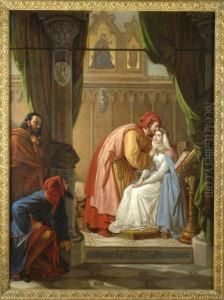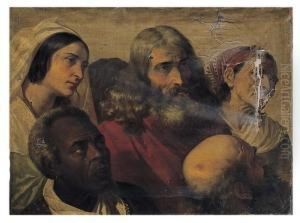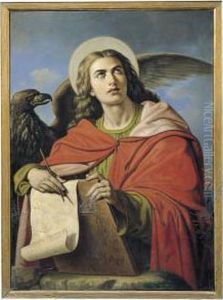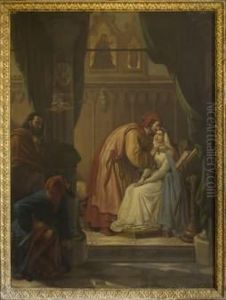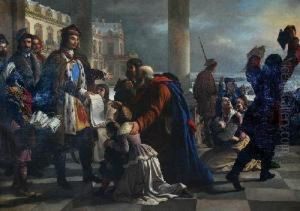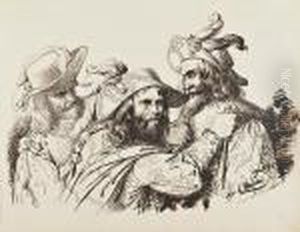Cesar Mussini Paintings
Cesar Mussini, born Cesare Mussini on June 7, 1804, in Berlin, was an Italian painter known primarily for his historical subjects and portraits. He was a prominent figure of the neoclassical and romantic movements of the 19th century. Mussini was the son of a violinist and grew up in an environment filled with musical and artistic influences. He initially studied at the Academy of Fine Arts in Berlin before moving to Italy to further his education.
Mussini's journey in Italy took him to Florence, where he became a student at the prestigious Academy of Fine Arts. Under the guidance of influential painters of the time, he honed his skills and developed a style that combined the classical tradition with the emotional depth of romanticism. Mussini's artwork was characterized by its fine detail, use of chiaroscuro, and often dramatic subject matter. He was particularly adept at capturing the psychological nuances of his subjects, which made his portraits highly sought after.
Throughout his career, Mussini was an active participant in the intellectual and cultural circles of Florence. He became a professor at the Academy of Fine Arts and played a significant role in shaping the next generation of Italian artists. Mussini's influence was not limited to his immediate students; through his teaching and his art, he contributed to the broader 19th-century Italian art scene.
Cesar Mussini's work was recognized and celebrated during his lifetime. He received commissions from notable patrons and his paintings were exhibited widely, including at the Paris Salon. Despite his success, Mussini remained deeply connected to his Italian roots, and his legacy is particularly strong in the Tuscan region, where he contributed to the cultural heritage of the area.
Mussini passed away on May 24, 1879, in Florence. Today, his works can be found in various art museums and collections around the world, where they continue to be appreciated for their historical significance and artistic merit.
